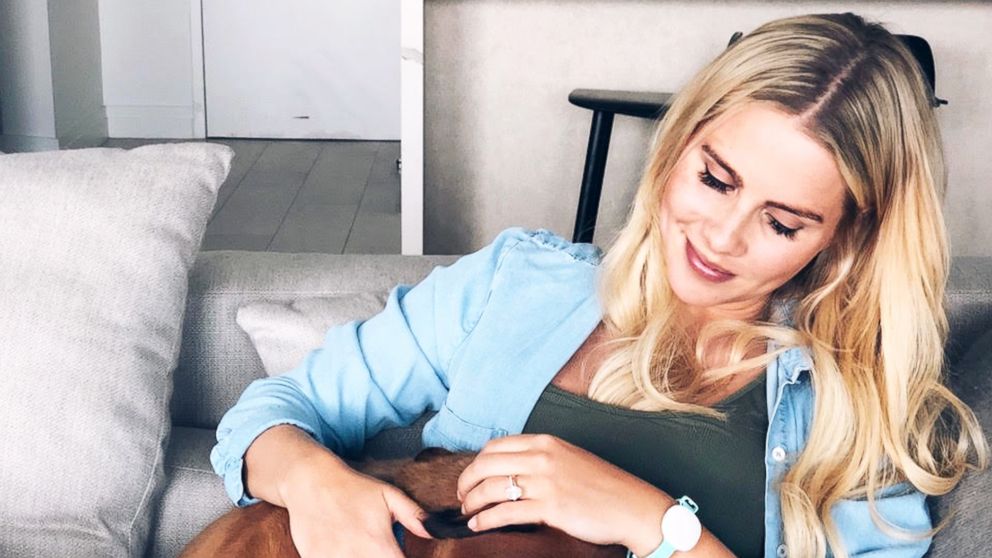
Australian actress Claire Holt suffered a tragic miscarriage earlier this year. Now, she's using her voice to help other women going through the same thing.
"The Originals” star recently partnered with Ava, a medical technology company, to help women learn about reproductive health and fertility issues.
Holt, who is currently pregnant, said her miscarriage led her to seek out information about her own reproductive health and increased her interest in connecting with women who are also struggling to conceive.
"It was a really devastating thing for me and it had a huge impact on my life," she told ABC News.
"I’d never really thought of my fertility before that. I’ve been on birth control since I was 16 years old, and I was uneducated about the real process of conceiving a child," she continued. "I didn't know the statistics about how common miscarriage was, and I never ever thought that it would happen to me."
Without knowing this information, it was even harder for Holt to understand her miscarriage, she said.
"I was completely blind sighted, grief-stricken and desperate for information," she said.
It also started to affect her new pregnancy.
"I didn't realize that the trauma of a miscarriage would carry with me into my pregnancy — that I would feel such tremendous anxiety and suffer from the ‘white coat syndrome’ every time I went to the doctor and have those sort of associations with what happened to me earlier every time I went in," she said.
"I was constantly worried that something was going wrong. I didn’t really have insight into what was happening with my body," she added.
(MORE: 'The Originals' star Claire Holt gets surprised by her own gender reveal)Having few resources to turn to besides the comfort she received from her loved ones, she sought out online support to help with the coping process.
I’m not so sure I would’ve gotten through the trauma of the miscarriage the way I did without this support of an online community.
"It became so important to me to be open and honest about what I’d been through," she said. "When I went online after my miscarriage and searched for someone to help me get through — and to find other women who had been through this experience so I didn’t feel alone — I found a community of really vulnerable, open women."
"I’m not so sure I would’ve gotten through the trauma of the miscarriage the way I did without this support of an online community," she added.
She also started using Ava's fertility tracking bracelet to learn more about her body by tracking her cycle, heart rate, weight, sleep and stress levels, along with her overall health symptoms, every day.
"There’s useful information every week about your growing body and what’s happening — the changes that are taking place," she said.
(MORE: Woman opens up about preparing for motherhood after 2 miscarriages)"It’s really helped me to ease a lot of anxiety, and that’s something that I needed in this pregnancy. It's also helpful because these things really do impact pregnancy. Stress levels and sleep quality can have an impact on how the pregnancy goes," she continued.
"In being able to monitor that stuff, I feel like I’ve taken control of my health and I’m able to take steps forward to having the healthiest pregnancy that I possibly can," she added.
Holt found that when she opened up about her miscarriage in an emotional post in March, her words touched many people.
It was devastating, but it wasn’t because I did something wrong.
"As frightening it was to be so open about something that was really personal — and something that, sadly, I felt ashamed of — when I did speak up, it showed me that there was just so much support and love out there and such a need for a conversation to be started," she said.
That response increased her determination to help others with fertility and reproductive issues.
"There are a lot of stigmas attached to that, so it’s important to me to try to assist in breaking those stigmas," she said.
She said that many women often place the blame on themselves after a miscarriage when it's completely out of their control.
"I was tremendously ashamed that my body couldn’t do what I thought it was supposed to do," she said.
"In researching and learning more and finding more information about our bodies, I realized that that wasn’t the case, and it was so sad that I had felt so ashamed, put so much pressure on myself and blamed myself for something that really was out of my control," she continued.
(MORE: Why 'Seventh Heaven' star Beverley Mitchell opened up about her miscarriage)"You wouldn’t blame yourself if you became sick, you wouldn’t blame yourself if you had type 1 diabetes, you wouldn’t blame yourself if you had any kind of sickness that was out of your control — that was genetic or hereditary — but for some reason, as women, we often blame ourselves, like, 'Why isn’t my body doing what it’s supposed to do,'" she added.
"I did everything I could to make sure that [it] was a healthy pregnancy, and for whatever reason, it didn’t go ahead," she said. "It was devastating, but it wasn’t because I did something wrong."
She hopes that by speaking out against this stigma, she can change this perception that is so prevalent.
"It’s something that I really want to help challenge and help women to feel comfortable sharing their stories and talking about these things and realizing that you didn't do anything. It’s just part of the circle of life. It’s part of health and our bodies."
Holt also wants her words to help empower other women to speak out.
"It’s okay to be open and vulnerable and talk about these things, and through that, we find shared and collective healing," she shared.